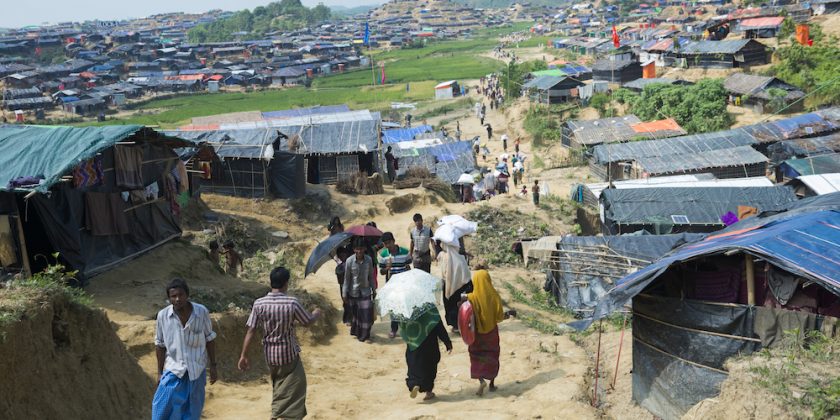Rather than close its doors and retreat from global leadership in the refugee crisis, the United States should embrace reforms that help refugees integrate. IPL’s Jeremy Weinstein and Jeremy Ferwerda make the case in Foreign Policy.
Writing in Foreign Policy, IPL co-director Jeremy Weinstein and faculty affiliate Jeremy Ferwerda discuss the challenges countries face in welcoming refugees. One response is to use those challenges for political advantage, as the Trump Administration did when it reinforced public fears and dramatically reduced the number of refugees admitted to the United States:
While there is no evidence that refugees pose a security threat to the United States — in fact, refugees undergo the most onerous and thorough background checks of anyone entering the United States — the Trump administration’s focus on culture isn’t accidental. For many Americans, the arrival of foreigners who speak another language or belong to another religion surfaces deeply-rooted concerns about integration.
Refugee resettlement also triggers economic anxieties. Because refugees are selected based on vulnerability — in particular, a well-founded fear of persecution — many arrive without the English proficiency or professional skills they need to succeed in the United States. Most of them initially must rely on social services to get on their feet. Taken together, refugees’ cultural difference and economic dependence are powerful ingredients for political backlash. And this isn’t unique to America: Just witness the nationalist hostility toward asylum seekers in Europe.
Another response, they write, is to develop innovative solutions to those challenges—solutions that benefit both refugees and the communities where they are resettled:
But while one response to this political reality is to close the doors and pull back from global leadership, there is an alternative. The administration could back up its commitment to innovation and efficiency by embracing critical reforms that more cost-effectively facilitate the integration of refugees into American communities.
One of those critical reforms is being developed here at IPL: sending refugees to the resettlement location where they are most likely to find work. Read the full piece here.







